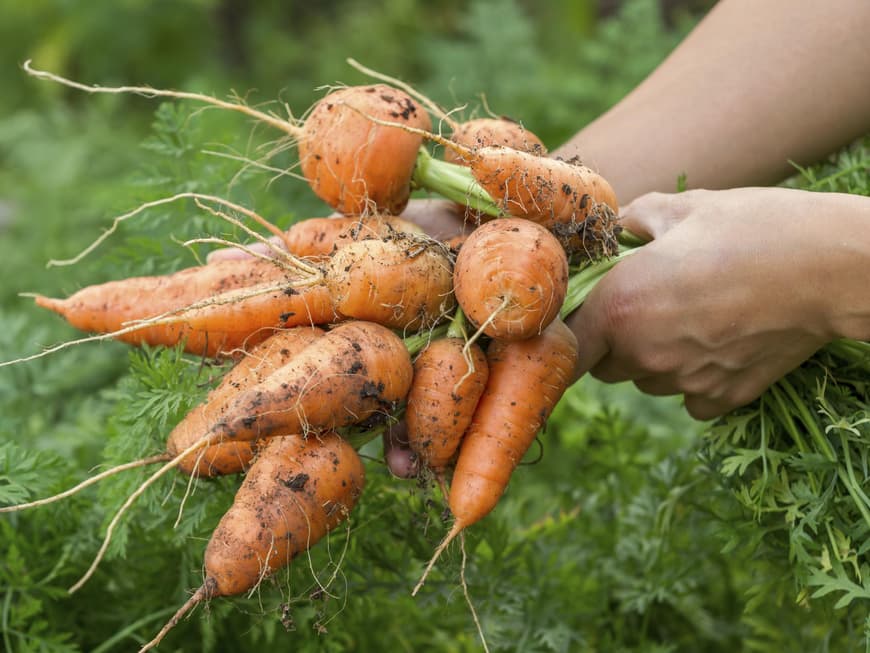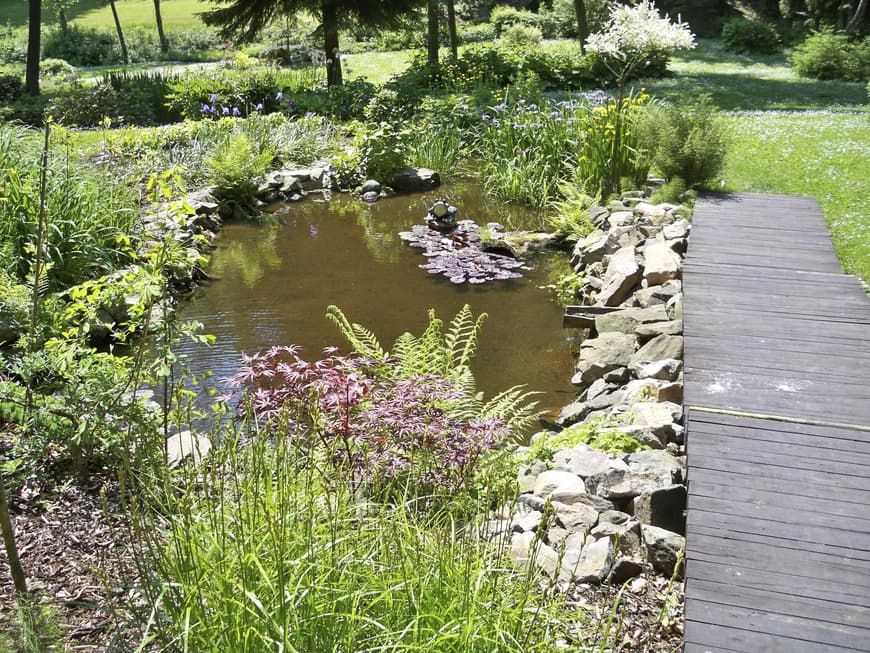Don't be too tidy - nature loves it wild
The saying goes: a good gardener is a lazy gardener. So if you want to create an organic garden, don't mess with nature too much and let the garden run wild instead of mowing and pruning everything meticulously.
Plant cleverly - and protect the diversity of varieties
Only buy plants that are suitable for your balcony or garden. If you are unsure, ask at the garden center. My tip: Plant historical vegetables - such as the Teltower Rübchen, Goethe's favorite variety. This will help to preserve them. You can find information at www.vern.de.
Garden naturally with the right potting soil
Those who garden naturally do without peat, as huge landscapes are dug up to extract it. You can find a list of peat-free potting soils at www.bund.net. You can make an exception if you are planting rhododendrons, magnolias or blueberries. These at least need peat-reduced soil. By the way: use organic fertilizer instead of artificial fertilizer. The best thing is to spread your own compost on the beds.
Don't forget to rake the soil from time to time
This not only removes weeds, but also ensures that the soil moisture no longer evaporates so quickly.
Gardening naturally against pests
Toxic pesticides? Not when gardening naturally! Aphids, for example, can simply be rinsed off with a garden hose. You can drive ants out of flower boxes by soaking the soil heavily in water. You can collect the voracious caterpillars of the cabbage white butterfly. And voles will move on if you stick a bamboo stick with an empty plastic bottle over it into the aisles. This makes a noise in the wind.
Be careful with pond pumps: save dragonfly larvae
So-called skimmers clean the pond by sucking in leaves and dirt from the surface and blowing them onto the shore. The problem: dragonfly larvae are also sucked into the device and die. Pull a nylon stocking over the pump. It acts like a filter and catches the larvae.
Plan hiding places for the animals
Piles of stones and wood, self-built insect hotels, nesting boxes - animals feel at home in the garden. For the bees' sake, plant flowers with open blossoms, otherwise they won't get any nectar.
Save energy and water - and protect the environment
Nowadays there are battery-powered garden tools. They produce no oil or diesel waste and are perfectly adequate for private, natural gardening. Also useful: solar-powered lamps and pond pumps.
Extra tip: How to get rid of snails
The little creepy-crawlies love to crawl all over the salad bed - especially in damp gardens. There's only one thing to do: block their access. The best way to do this is with special slug fences that have an edge at the top (from 7 euros, garden center). You should also collect the slug eggs from the bed. These are small, white balls.



